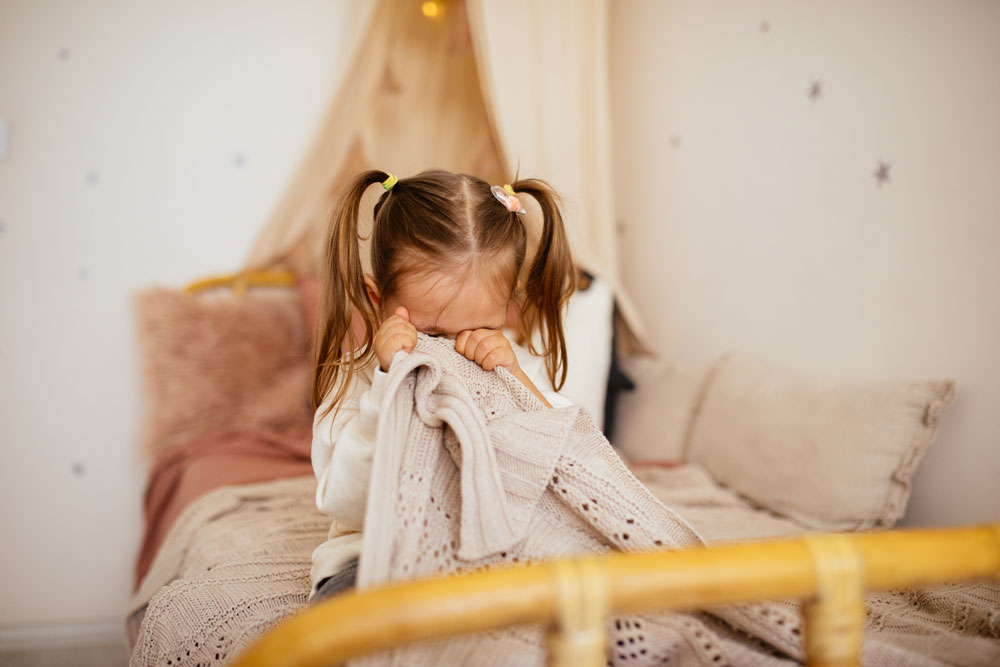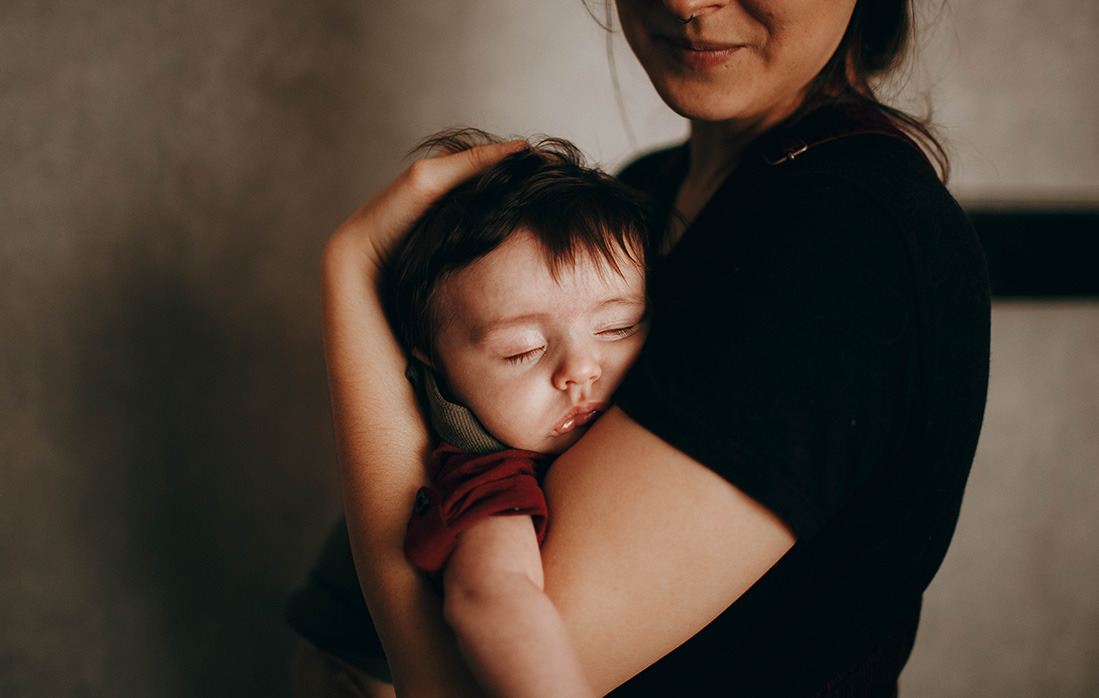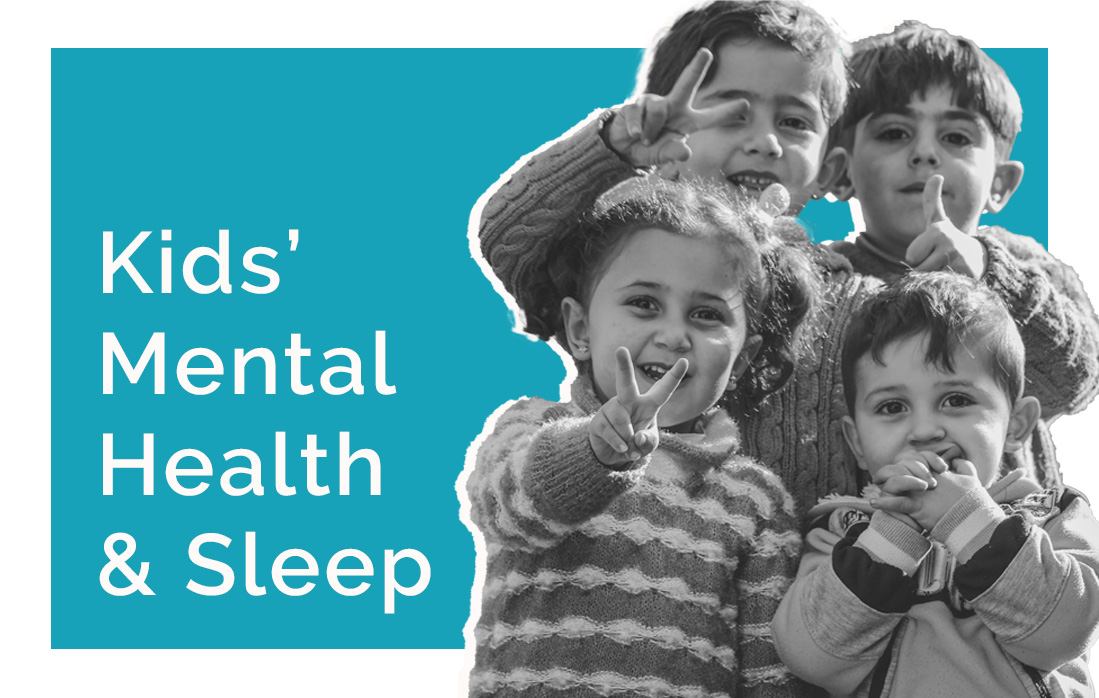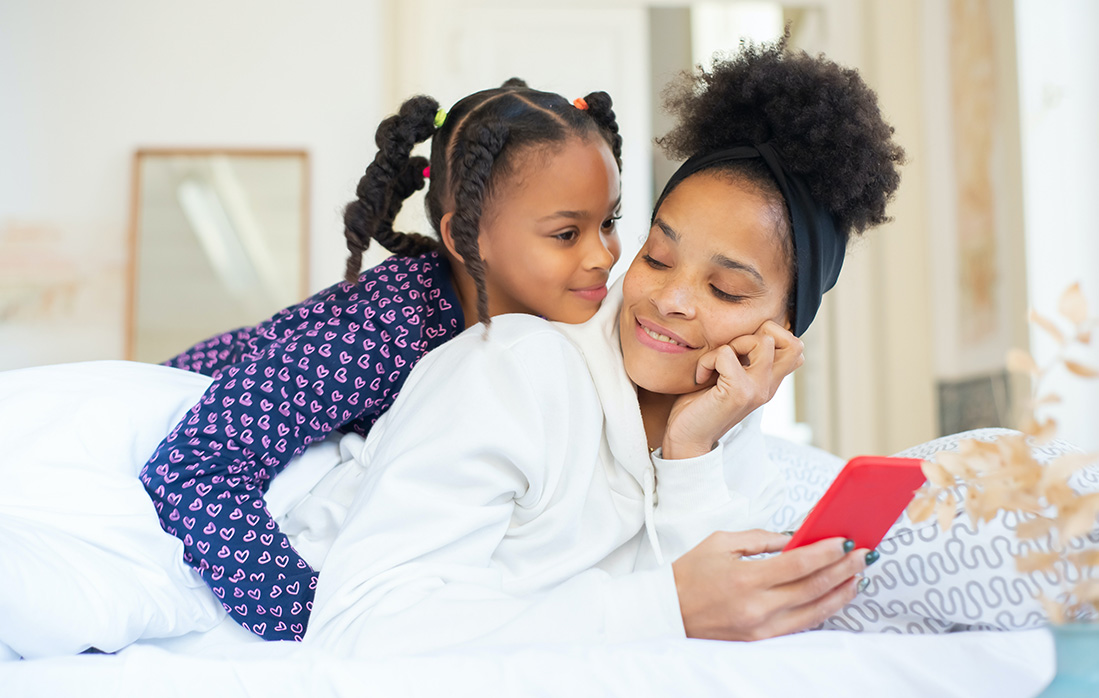
Bedtime is supposed to be one of the most relaxing times of the day. You’re winding down, taking part in your nighttime routines and getting ready for some good, restorative sleep. However, for some, bedtime can be one of the more stressful parts of their day. Adults can experience bedtime anxiety for many reasons, but this anxiety isn’t unique to adults.
Sleep anxiety can have a pretty significant impact on a child’s development. Sleep is crucial for growing children, and if your kids are resisting bedtime or are scared to fall asleep, that can be pretty nerve wracking for parents. A recent poll from C.S. Mott Children’s Hospital National Poll on Children’s Health found that one in four parents reported their child experiencing some form of sleep anxiety. (1)
What Is Sleep Anxiety?
Sleep anxiety is a form of anxiety that is centered around sleeping and going to bed. You might experience anxiety over having nightmares or feel anxiety about not being able to getting to sleep. According to the Mott Poll Report, kids are experiening this very same anxiety.
Children’s sleep anxiety can manifest itself as being “scared of the dark or [being] worried that something bad might happen”. The response to these anxieties is often to “delay bedtime or insist that their parents stay in the room”. While these responses make sense, it can be frustrating for parents who are trying to get to sleep themselves
What Causes Sleep Anxiety in Kids?
Co-Director of the survey, Sarah Clark, MPH told Sleepopolis that “As kids move through this age range (1-6 years), their brains develop in many ways; this often leads to phases where kids are anxious about new and unknown things.” (2)
Additionally, these anxieties can manifest themselves differently for children at different developmental stages. Clark says “stranger anxiety is common for younger kids. Many toddlers have separation anxiety when they are away from their parents. At the older end of this age range, kids may be afraid of the dark or afraid of monsters, or anxious that bad things that they’ve heard about (from adults, from other kids, from TV or books) might happen”. (2)
What the Recent Mott Poll Report Says About Children’s Sleep Anxiety
In addition to the poll finding that 1 in 4 parents reporting sleep anxiety in their children, the poll also reported that 36 percent of parents reported that their children often or occasionally woke up crying, 43 percent of parents reported that their children moved to their bed, and 31 percent of parents reported that their children insisted on their parents staying in their room. (1)
Why Is Sleep Anxiety Bad for Kids?
A child delaying sleep, refusing sleep or experiencing inconsistent sleep can lead to children potentially experiencing some negative health consequences that are associated with a lack of sleep. These include, attention and behavioral problems, trouble learning, increased risk of accidents, hypertension, obesity, diabetes, and depression (3)
Children develop rapidly during early childhood, and their sleep needs evolve as they grow from a baby to a toddler to a young child. Sleep anxiety can make these transitions even harder on children. By not getting enough sleep, kids can miss out on some of the health benefits that come from sleeping, such as improved emotional regulation, attention, behavior, memory, mental and physical health. (3)
What Can I Do to Combat Sleep Anxiety?
Bedtime routines are highly recommended in the report, since “a bedtime routine signals to the child that it’s time to slow down; the familiar pattern helps them feel comfortable and secure”. The report also recommends making changes to a child’s sleep environment if necessary, by providing them with their own bed in a quiet room away from other members of the household. The report found that 90 percent of parents implement some bedtime routine with their children. (1)
Clark recommends including time to talk about the day in your child’s bedtime routine, saying “this gives young children a chance to verbalize — and parents a chance to understand — any worries that may be bothering them. Then parents can offer reassurance or provide information to help calm those fears. Younger children may want to see the parents take action to ward off bad things — such as checking under the bed or in the closet”. (2)
If sleep anxiety persists despite parental intervention, Clark suggests talking with the child’s pediatrician for recommendations or even a referral to a behavioral therapist who can help your child learn anxiety mitigating techniques. (2)
What About Melatonin?
If your child has trouble sleeping, you might be considering giving them melatonin as a sleep aid. You wouldn’t be alone — the Mott Poll Report found that one in five parents give their children melatonin to help them fall asleep and stay asleep. (1)
However, the C.S. Mott Children’s Hospital recommends that parents “consult with the pediatrician, to discuss options and to rule out other causes of sleep problems” and to “start with the lowest dose possible, and ensure that the melatonin is stored out of the child’s reach.”
Since melatonin isn’t regulated or approved by the FDA for children under 18, it’s best to consult your pediatrician before giving your child melatonin.

A Comprehensive Guide To Babies And Sleep

A Complete Guide to Kids’ Mental Health and Sleep

All the Conflicting Information About Melatonin and Kids

13 Sleep Tips for Kids From Parents Who Have Been There
Sources
- Clark, Sarah, J., Woodford, Susan, J., Schultz, Sara, L. et al. Getting young children to bed: sweet dreams or nightmare? Mott Poll Report. June 17 2024.
- Clark, Sarah, J. Personal interview. June 20, 2024.
- Paruthi, Shalini, Brooks, Lee, J., D’Ambrosio, Carolyn, et al. Recommended amount of sleep for pediatric populations: a consensus statement of the American Academy of Sleep Medicine. JCSM 2016, DOI: 12(6):785–786.
